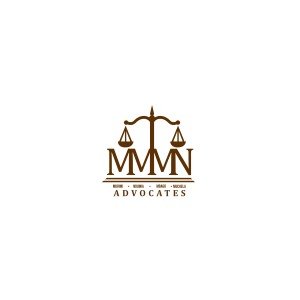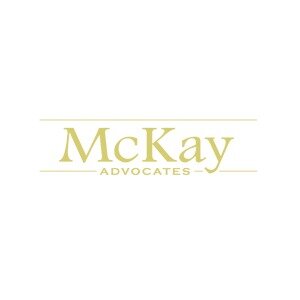Best Bankruptcy Lawyers in Nakuru
Share your needs with us, get contacted by law firms.
Free. Takes 2 min.
List of the best lawyers in Nakuru, Kenya
About Bankruptcy Law in Nakuru, Kenya
Bankruptcy is a legal process that provides relief to individuals, businesses, and organizations who are unable to repay their outstanding debts. It offers a fresh start by allowing debtors to be released from most financial obligations, while also distributing their assets to creditors. Understanding the bankruptcy laws of Nakuru, Kenya is crucial if you find yourself in a situation where filing for bankruptcy is necessary.
Why You May Need a Lawyer
Bankruptcy can be a complex legal process, and seeking the advice and assistance of a lawyer who specializes in bankruptcy law can greatly benefit you. Lawyers experienced in bankruptcy can guide you through the necessary paperwork, represent you in court, and help protect your rights and interests. Here are some common situations where legal help may be needed:
- Facing foreclosure on your home or repossession of assets
- Overwhelmed by mounting debt and unable to negotiate with creditors
- Being sued by creditors for unpaid debts
- Need assistance with filing bankruptcy forms and meeting legal requirements
- Wishing to understand your rights and options under bankruptcy laws in Nakuru, Kenya
Local Laws Overview
Bankruptcy laws in Nakuru, Kenya are governed by the Insolvency Act of 2015. Here are key aspects of local laws relevant to bankruptcy:
- There are three types of bankruptcy filing: voluntary bankruptcy, compulsory bankruptcy, and receivership.
- In voluntary bankruptcy, an individual or business files for bankruptcy themselves.
- In compulsory bankruptcy, a creditor initiates the bankruptcy proceedings against a debtor.
- Receivership is a process where a receiver is appointed to manage and sell the assets of a bankrupt entity.
- Bankruptcy eligibility criteria, such as the amount of debt, may vary based on individual or business cases.
- The bankruptcy process involves the appointment of a trustee who oversees the distribution of assets and the discharge of debts.
- Not all debts are dischargeable under bankruptcy, such as child support, taxes, and certain court judgments.
Frequently Asked Questions
1. Can bankruptcy completely eliminate all my debts?
No, certain debts, such as child support, taxes, and court judgments, may not be eliminated through bankruptcy. However, it can offer relief from many other outstanding debts.
2. Will filing for bankruptcy ruin my credit forever?
Bankruptcy will have a negative impact on your credit score, but it is not permanent. With time and responsible financial behavior, creditworthiness can be rebuilt.
3. How long does the bankruptcy process take?
The duration of the bankruptcy process varies depending on the complexity of your case, court workload, and other factors. It can typically range from several months to a few years.
4. Can I keep any of my assets if I file for bankruptcy?
Some assets may be exempt from bankruptcy proceedings, such as basic household items, clothing, and necessary tools for work. Consult a lawyer to determine which assets may be protected.
5. Can I file for bankruptcy without hiring a lawyer?
Yes, it is possible to file for bankruptcy without a lawyer, but it is highly recommended to seek legal assistance. The bankruptcy process involves complex paperwork and legal proceedings, which can be difficult to navigate without professional expertise.
Additional Resources
Here are some resources that can provide further guidance and support for bankruptcy-related matters in Nakuru, Kenya:
- Nakuru Bankruptcy Court - Provides information about court procedures and resources related to bankruptcy in Nakuru, Kenya.
- National Council for Law Reporting - Offers access to laws, regulations, and judgments related to bankruptcy in Kenya.
- Kenya Revenue Authority - Provides information about tax obligations and implications associated with bankruptcy.
- Nakuru Legal Aid Clinic - Offers free legal advice and assistance to individuals who cannot afford traditional legal representation.
Next Steps
If you require legal assistance in bankruptcy in Nakuru, Kenya, consider taking the following steps:
- Gather all relevant financial documents and information, such as debts, assets, and income records.
- Research and shortlist experienced bankruptcy lawyers in Nakuru, Kenya.
- Consult with selected lawyers to discuss your financial situation and explore possible solutions.
- Hire a lawyer who understands your needs and can guide you through the bankruptcy process.
- Work closely with your lawyer to complete all necessary paperwork and fulfill legal requirements.
- Attend court hearings and cooperate with the trustee assigned to your bankruptcy case.
- Follow any recommendations or requirements from your lawyer and the court to ensure a smooth bankruptcy process.
- Take steps to rebuild your financial life after bankruptcy, such as creating a budget and practicing responsible financial habits.
Lawzana helps you find the best lawyers and law firms in Nakuru through a curated and pre-screened list of qualified legal professionals. Our platform offers rankings and detailed profiles of attorneys and law firms, allowing you to compare based on practice areas, including Bankruptcy, experience, and client feedback.
Each profile includes a description of the firm's areas of practice, client reviews, team members and partners, year of establishment, spoken languages, office locations, contact information, social media presence, and any published articles or resources. Most firms on our platform speak English and are experienced in both local and international legal matters.
Get a quote from top-rated law firms in Nakuru, Kenya — quickly, securely, and without unnecessary hassle.
Disclaimer:
The information provided on this page is for general informational purposes only and does not constitute legal advice. While we strive to ensure the accuracy and relevance of the content, legal information may change over time, and interpretations of the law can vary. You should always consult with a qualified legal professional for advice specific to your situation.
We disclaim all liability for actions taken or not taken based on the content of this page. If you believe any information is incorrect or outdated, please contact us, and we will review and update it where appropriate.










